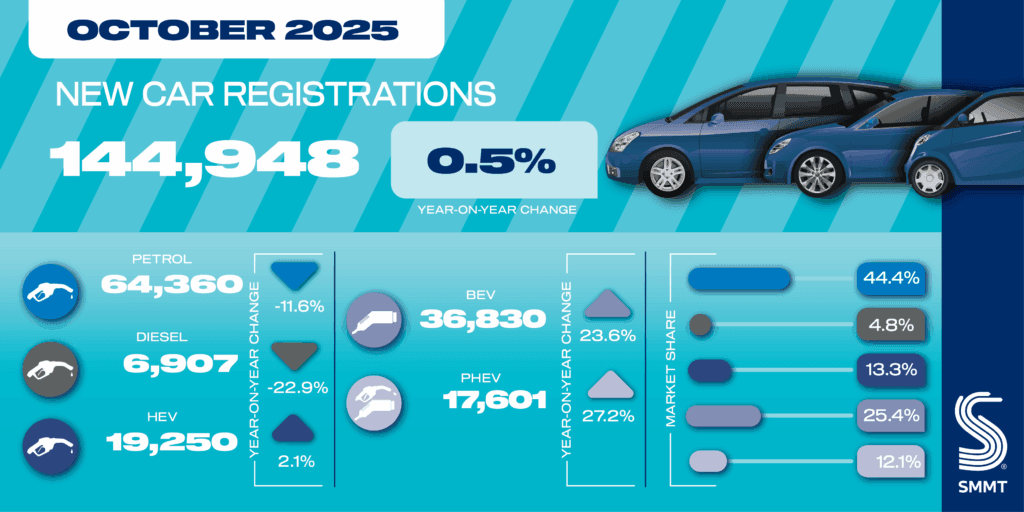UK BEV registrations surpass 2024 total
Cumulative BEV registrations for 2025 now total 386,244 units – already exceeding the full-year total for 2024, with two months remaining. BEVs currently represent 22.4% of all new cars sold in the UK in 2025, underpinned by major manufacturer investment and sustained government support through incentives such as the Electric Car Grant.
Overall car registrations only rose slightly in October in the UK, specifically by 0.5% to 144,948 units, according to the latest data from the Society of Motor Manufacturers and Traders (SMMT). That growth can be attributed to electric and electrified vehicles, as the number of new diesel and petrol cars continues to drop.
BEV sales, on the other hand, increased by 23.6% compared to the same month last year, adding more than 7,000 units and bringing their share of the market to 25.4%. This marks the second-highest monthly BEV share in 2025, though still short of the 28% target set by the government’s Zero Emission Vehicle (ZEV) Mandate. PHEVs saw an increase of 27.2% YoY, while the number of HEVs rose by 2.1% compared to the same period last year.

The SMMT’s latest quarterly outlook predicts that 2025 will be the first year since 2019 that UK new car registrations surpass two million units, with BEVs forecast to account for 23.3% of total sales. That share is expected to rise to 28.2% in 2026 and 32.2% in 2027, though these figures still fall short of the mandated targets of 33% and 38%, respectively.
Despite the strong momentum, the SMMT cautions that the growth of the vehicle market could be derailed by government plans to end Employee Car Ownership Schemes (ECOS). Making ECOS vehicles liable for company car tax would effectively terminate the schemes, removing around 100,000 cars – roughly 5% of the annual market – from circulation each year. That will also affect the BEV market, as the ECG cannot make up for the extra cost.
“The government has backed the UK automotive sector with EV incentives and global trade deals, helping drive growth and encourage decarbonisation. But scrapping ECOS would undermine that progress – penalising workers, reducing Exchequer income and putting green investment at risk,” said SMMT Chief Executive Mike Hawes. “At a time when the Budget should fuel growth, the measure will do the exact opposite. It is time for a rethink.”





0 Comments